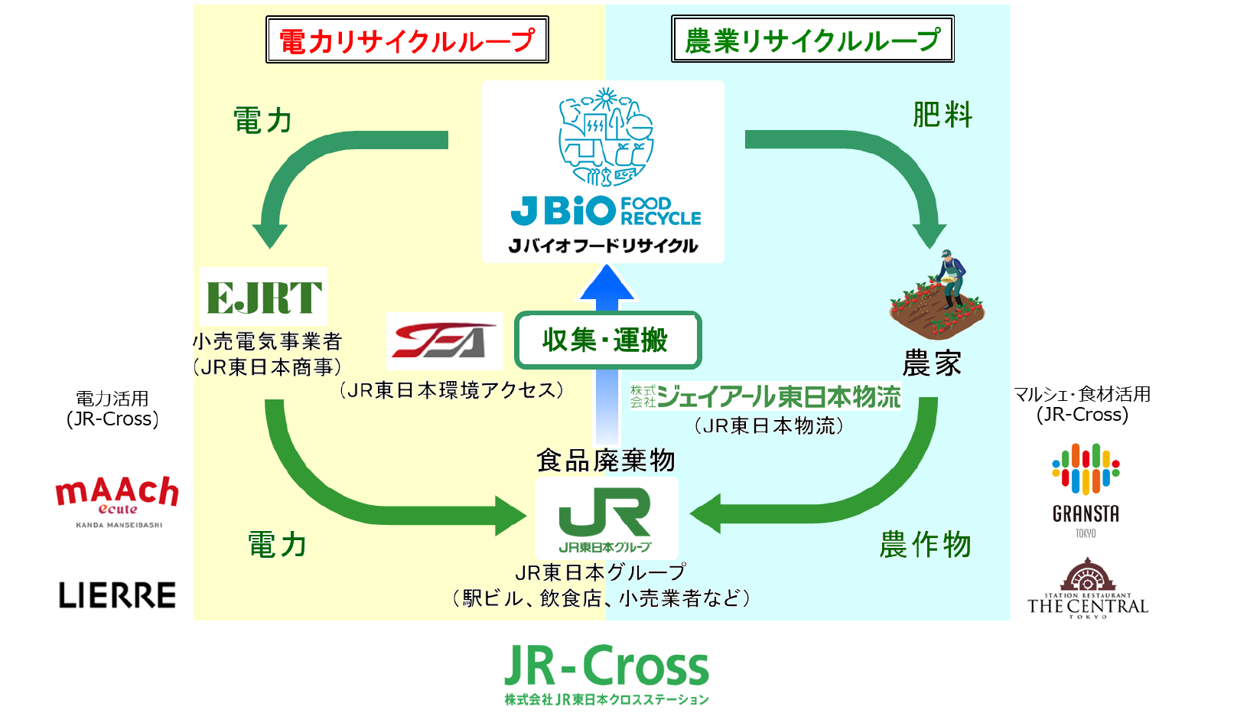As part of its “Transformation 2027” vision, JR East Group has introduced the “Double Recycling Loop” to promote a circular economy by recycling food waste from station buildings and retail areas into electricity and agricultural resources. This new loop, powered by food waste-derived energy, is set to begin operations at Tokyo Station in December 2024.

Transforming Food Waste into Renewable Energy and Agricultural Resources
In today’s world, where sustainable resource circulation is essential, JR East Group is advancing circular economy initiatives through the introduction of the “Double Recycling Loop.” This initiative transforms food waste from station buildings and retail areas into resources, with the support of J Bio Food Recycle Corporation (J Bio), to create renewable energy and agricultural products in a dual recycling approach.
Specifically, facilities operated by JR East Cross Station, such as Marché Ecute Kanda Manseibashi and Lierre Fujisawa, have already been processing food waste 100% through J Bio. Starting in December 2024, these facilities will transition to using electricity derived from biogas generated from food waste, reducing CO2 emissions by an estimated 873 tons annually.
The “Agricultural Recycling Loop” will also see fresh vegetables grown with fertilizer generated by J Bio available for sale and consumption at Tokyo Station. From October 31 for three days, Tokyo Station will host the “LOOP de Marché,” where vegetables grown by local farmers from Fujisawa City will be sold. Additionally, starting in December, “THE CENTRAL” restaurant at Tokyo Station will feature dishes prepared with these vegetables, creating a sustainable food cycle born from food waste.
The “Agricultural Recycling Loop” will also see fresh vegetables grown with fertilizer generated by J Bio available for sale and consumption at Tokyo Station. From October 31 for three days, Tokyo Station will host the “LOOP de Marché,” where vegetables grown by local farmers from Fujisawa City will be sold. Additionally, starting in December, “THE CENTRAL” restaurant at Tokyo Station will feature dishes prepared with these vegetables, creating a sustainable food cycle born from food waste.
